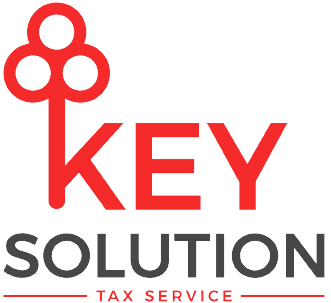Unlocking Tax Advantages and Financial Education: Paying Your Children

In the realm of taxation, one topic that often raises questions and curiosity is paying your children. As a responsible taxpayer and a parent, you may be wondering if it's possible to involve your children in your financial affairs while also benefiting from certain tax advantages. In this blog post, we'll explore the intricacies of paying your children and how it can be a smart financial move for both you and your family.
1. The Basics of Paying Your Children
When it comes to involving your children in your financial activities, it's essential to understand the fundamental principles. Paying your children for legitimate services rendered is entirely legal and can even offer tax advantages for your small business.
Why Pay Your Children?
- Tax Deductions: Paying your children can potentially allow you to deduct their wages as a business expense, reducing your taxable income.
- Financial Education: It's an opportunity to teach your children about financial responsibility and the value of hard work.
- Asset Protection: By employing your children, you can potentially protect assets from creditors.
2. What Services Can Your Children Provide?
To pay your children legitimately, they must provide real services to your business. These services should be age-appropriate and genuinely beneficial to your operations. Some common tasks include:
1. Administrative Work: Filing, data entry, and organization.
2. Social Media Management: Handling your business's social media accounts.
3. Content Creation: Writing blog posts, creating graphics, or producing videos.
4. Customer Service: Answering phones or emails and assisting customers.
5. Product Assembly: If you sell physical products, your children can help with assembly or packaging.
3. Compliance with Tax Regulations
To fully benefit from paying your children while remaining within the bounds of tax regulations, it's crucial to follow these guidelines:
1. Keep Accurate Records: Maintain detailed records of the work performed by your children. This includes timesheets, descriptions of tasks, and payment records.
2. Pay Fair Wages: Ensure that the wages you pay your children are reasonable and in line with what you would pay an unrelated employee for the same work.
3. Issue W-2 or 1099 Forms: Depending on their employment status (employee or contractor), provide your children with the appropriate tax forms at the end of the year.
4. Withhold Payroll Taxes: If your children are employees, you may need to withhold and remit payroll taxes, including Social Security and Medicare.
5. Seek Professional Guidance: Consult with a tax advisor or CPA to ensure that you are in compliance with all applicable tax laws and regulations.
4. Tax Benefits for Your Business
By paying your children, you can unlock several tax benefits for your small business:
1. Lower Taxable Income: Wages paid to your children can be deducted as a business expense, reducing your taxable income.
2. Lower Payroll Taxes: If your children are under 18, you may be exempt from paying certain payroll taxes, such as FUTA (Federal Unemployment Tax Act) and sometimes even FICA (Federal Insurance Contributions Act).
3. Income Shifting: Shifting some of your income to your children can help balance your family's overall tax liability, potentially leading to lower tax rates.
4. Asset Protection: Money paid to your children can be used to fund their education or other expenses, providing a layer of asset protection.
5. Teaching Financial Responsibility
Beyond the tax advantages, involving your children in your business can be an excellent opportunity for teaching financial responsibility. By giving them a chance to earn their own money, you can instill valuable lessons about budgeting, saving, and investing. It also fosters a strong work ethic and a sense of responsibility from a young age.
Paying your children for their work in your business can be a strategic financial move with both tax advantages and educational benefits. However, it's essential to approach this practice with careful consideration of tax regulations and compliance.
At Key Solution Tax Service, we specialize in providing tax advisory services to individuals and small businesses, including Individual Tax Return Preparation, Small Business Tax Return Preparation, Amendments, Back Tax Filing services and Business Formation. If you have questions about how to properly pay your children while optimizing your tax strategy, we're here to help.
Reach out to us today at +1 (866) 800-1716 or via email at [email protected]. Our team of tax experts is ready to assist you in making informed financial decisions and ensuring compliance with tax laws. Let's work together to achieve your financial goals while securing a bright future for your children.
Get In Touch
How Can We Help?
Contact us if you need more information, and we will reply as soon as possible.
